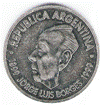Modern Languages and Literatures, Department of

Spanish Language and Literature Papers
De la patria criolla a la nación Mexicana: Surgimiento y articulación del nacionalismo en la prensa Novohispana del siglo XVIII, en su contexto transatlántico
Document Type
Article
Date of this Version
12-16-2010
Abstract
Spanish American creoles constructed an epistemological alternative to Europe. For such a project, 18th-century creoles relied on two forces that their predecessors did not enjoy: the cultural environment of the Enlightenment, which allowed them to question traditional sources of authority, and print journalism, which gave them the space to disseminate their ideas and construct an alternative identity. These New Spanish intellectuals who were linked to newspapers adopted the name literato and were an elite who sustained dialogues and debates in the viceroyalty, throughout the continent, and in different European countries, becoming a group whose discussions and alliances reached a transatlantic scope. As part of their rhetorical strategy for constructing both their own epistemology and a patriotic identity, they used particular words to refer to the political entity to which they belonged. Especially in the second half of the 18th century, the literatos privileged the use of certain nouns (like “country,” “nation,” and “America”) when referring to New Spain. At the same time, they relegated the use of other nouns (like “monarchy,” “court,” and “viceroyalty”) that carried a semantic charge associated with the colonial system. This dissertation studies the evolution of that patriotism in New Spanish newspapers and how it gave rise to a new idea of nationalism. In the last quarter of the 18th century, the literatos fostered the idea that what—until then—they had called “country,” could be converted into a new nation. Their nation. What eventually would be called Mexico.


Comments
Dissertation at the University of Illinois at Urbana-Champaign